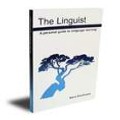I knew that to progress in Japanese I had to expose myself to as much Japanese language content as possible. As soon as I could make out some of the meaning, I made a point of always listening to Japanese radio even though there was an English language radio station in Tokyo. I listened repeatedly to tapes, and read what I could. Unfortunately there were not nearly as many readers with vocabulary lists available in Japanese as there had been for Chinese. Nowadays with the Internet, modern dictionary software and a system like The Linguist, a great range of material is accessible to the motivated learner. It is possible to quickly progress from specially prepared "textbooks" to the real language. The sooner you can get away from learner language and start to discover the real language, the faster you will progress.
You must be determined to find your own way to a new language, and be careful of teachers imposing their versions of the language on you. One evening I was driving home listening to Japanese Public Educational Radio (NHK) when I heard the following sounds coming from my radio. "Zey aa sayrazu, zey aa sayrazu." This went on for many minutes. I thought it was a Buddhist chant. Finally I realized that it was a radio English teacher with a heavy Japanese accent repeating the phrase "they are sailors." This kind of repetitive mimicry of words is the opposite of meaningful content and is of little use. In a way this reminded me of the French instruction I had in school. Today there are young native speaker English teachers in every Japanese city and town. English teaching in Japan has progressed a great deal since the 1970s.
As my Japanese improved, I tried to vary the type of content to keep it interesting and to broaden my knowledge of the language. For example, when our family went on a tour of the Izu Peninsula, I took an audio version of Nobel Prize winner Kawabata Yasunari's novel The Izu Dancers along to listen to in the car. We retraced the route of the itinerant dancing troupe described in the novel while enjoying the picturesque mountain and ocean scenery of the region.
One of the most interesting tapes that I listened to was an NHK product called The History of the Showa Era. This consisted of re-broadcast live radio news from the period 1925 to 1945. Over time I was able to understand most of it. In my mind, I can still hear certain phrases from radio personalities announcing sports events or political or historical happenings from that period. Today, with the expanded production of audio books and e-books, there is a great deal of authentic content available in many languages to suit the interests of language learners.
While reading and repetitive listening are effective in becoming familiar with a new language, genuine interaction with native speakers is always the greatest stimulus and training ground for the learner. My closest colleague at the Canadian Embassy in Tokyo was the Japanese Commercial Officer, Mr. "Nick" Yazaki. He was a major help in my efforts to learn Japanese. He had the advantage, from my point of view, of being inclined to express himself in a most careful, painstaking and long-winded way. I imitated his pronunciation and his favourite turns of phrase. From the beginning he supported me in my efforts to learn Japanese. He was an important influence on my learning. Finding a native speaker who is patient and supportive can be invaluable in learning a new language.
In time, I was able to hold up my end of most conversations. My conversation strategy was to try to keep what I had to say simple and well within my capabilities. I tried to avoid speaking quickly so that my thoughts did not run ahead of my language. This is easier said than done, however, and often I struggled to express myself. But it was all part of the learning process.

